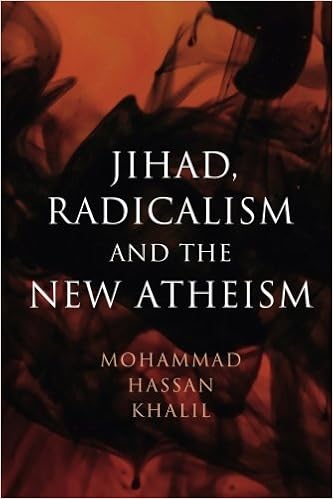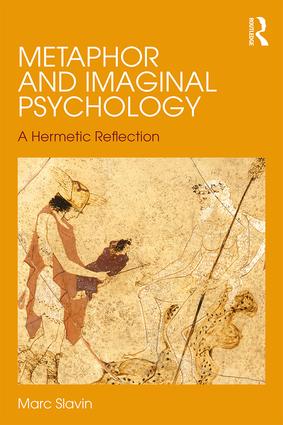"...the Imagination (or love, or sympathy, or any other sentiment) induces knowledge, and knowledge of an 'object' which is proper to it..."
Henry Corbin (1903-1978) was a scholar, philosopher and theologian. He was a champion of the transformative power of the Imagination and of the transcendent reality of the individual in a world threatened by totalitarianisms of all kinds. One of the 20th century’s most prolific scholars of Islamic mysticism, Corbin was Professor of Islam & Islamic Philosophy at the Sorbonne in Paris and at the University of Teheran. He was a major figure at the Eranos Conferences in Switzerland. He introduced the concept of the mundus imaginalis into contemporary thought. His work has provided a foundation for archetypal psychology as developed by James Hillman and influenced countless poets and artists worldwide. But Corbin’s central project was to provide a framework for understanding the unity of the religions of the Book: Judaism, Christianity and Islam. His great work Alone with the Alone: Creative Imagination in the Sufism of Ibn ‘Arabi is a classic initiatory text of visionary spirituality that transcends the tragic divisions among the three great monotheisms. Corbin’s life was devoted to the struggle to free the religious imagination from fundamentalisms of every kind. His work marks a watershed in our understanding of the religions of the West and makes a profound contribution to the study of the place of the imagination in human life.Search The Legacy of Henry Corbin: Over 800 Posts
Tuesday, January 30, 2018
An interesting new essay from Russia
Understanding Imagination: Towards a New Humanitarian Paradigm
ALEKSANDR SAUTKIN
Murmansk Arctic State University, Russia
Key words: imagination, image, sensual world, anthropological traject, mundus imaginalis.
Summary
The article deals with the problem of imagination interpreted in a broad historical and philosophical
perspective. It is shown that European metaphysics have for a long time neglected imagination in favour of reason. In contrast to this position, the necessity of considering imagination in a new way is postulated – as a leading creative force of the human being. In this connection, the ideas of Henri Corbin and Gilbert Durand are analysed as a possible source of new ways of humanitarian discourse.
PDF HERE
Friday, January 26, 2018
Recent Work by Mohammed Rustom
MOHAMMED RUSTOM in Renovatio 1.1 - Feature Article
By Mohammed Rustom - Sacred Web 39
And in two recent books of interest:
Sebastian Günther and Todd Lawson (eds):
Roads to Paradise: Eschatology and Concepts of the Hereafter in Islam.
(Islamic History and Civilization: Studies and Texts.)
2 vols. xliv, 1493 pp.
Leiden: Brill, 2017.
M. Rustom
Taylor, Richard C., and Luis Xavier López Farjeat (eds.).
The Routledge Companion to Islamic Philosophy.
London: Routledge, 2016.
Mohammed Rustom
Dr. Mohammed Rustom
Associate Professor
College of the Humanities
Carleton University
Thursday, January 25, 2018
Jihad, Radicalism, and the New Atheism
Jihad, Radicalism, and the New Atheism
Mohammad Hassan Khalil
"One of this book's key insights is that liberalism can also be rather fundamentalistic in its scope and approach, and that the so-called New Atheists such as Sam Harris have even more violent and radical readings of the Quran than the jihadis themselves. Thus, the author argues, there are very few real differences in extremes when we look at the discourses of radical liberals/New Atheists and those of the jihadis. This is reminiscent of a point made by Seyyed Hossein Nasr in his book written in 1987, Traditional Islam in the Modern World (re-issued in 2010 as Islam in the Modern World). There, Nasr shows how modernism (liberalism being modernism's logical extension) and fundamentalism are two sides of the same coin, sharing in common, among other things, the rejection of tradition." - Mohammed Rustom, Associate Professor, College of the Humanities,Carleton University
"Mohammad Khalil's critique of the "new atheists" is compelling, rational, and hard-hitting without veering into polemics. The result is a highly lucid, carefully argued and engaging book on a very timely topic that has been begging for such a level-headed, scholarly treatment." - Asma Afsaruddin, Professor of Near Eastern Languages & Cultures, Indiana University
"...[N]o work has to this point looked at jihadist discourses on war and New Atheist discourses on Islam together as a shared narrative around what it means to be genuinely motivated by religion in modern Islam. Mohammad Khalil's book does just that, and it should be required reading for anyone looking for a way out of the Manicheanism of both jihadism and certain kinds of anti-religious discourse." - Andrew F. March, Law and Social Change Fellow, Islamic Legal Studies Program, Harvard Law School
Tuesday, January 23, 2018
Monday, January 22, 2018
Wednesday, January 17, 2018
An Important New Book on the Imaginal
Just got my copy - this is an important book. - TC
"This book is a necessity for students of James Hillman's Archetypal Psychology. Slavin focuses on Hillman's key notions: Soul, Image, Personifying, Pathologizing, Psychologizing, Dehumanizing. Providing these notions with careful background and comparison (particularly with Derrida), Slavin dramatically extends Hillman's reach in depth and breadth. I heartily recommend this book." - Patricia Berry
Metaphor and Imaginal Psychology
A Hermetic Reflection
Marc Slavin
Metaphor and Imaginal Psychology: A Hermetic Reflection provides the first full-length exploration of the significance of metaphor in post-Jungian psychology. Its portrayal of the mythological figure of Hermes as a personification of metaphor marks an original contribution to the field of metaphor studies.
After a 2,500-year exile from philosophy and related areas of study, beginning with Plato’s ejection of the poets from the ideal city-state, metaphor is today experiencing a season of renewal. Among the fields where its significance as a way of seeing, thinking, and feeling has been especially prominent is archetypal psychology, perhaps the most philosophically attuned of psychological disciplines.
Approaching the work of James Hillman and other key archetypal psychologists from a poststructuralist perspective, Metaphor and Imaginal Psychology draws insightful comparisons between archetypal psychology and the deconstructive philosophy of Jacques Derrida, a principle theorist of metaphor’s philosophical resurgence.
By linking two disciplines that might at first appear as strange bedfellows, Metaphor and Imaginal Psychology underscores the influence of metaphor in reason and emotion, and makes a compelling case for the Mercurial ethos of our postmodern world. Aside from representing essential reading for therapists and theorists working in post-Jungian studies, the book will appeal to readers, students and scholars of literary criticism, psychology, philosophy and mythology.
"Slavin’s book opens the space for a much-needed conversation in post-Jungian studies. This book performs a rather difficult feat: it articulates a rigorous academic and philosophic approach to metaphor while remaining true to the Hermetic spirit which it explicitly espouses. This text, with its profundity and playfulness, constitutes a true invocation of the senex-et-puer constellation. It bridges disciplines which have thus far flirted with connecting but have failed to do so in a consistent way. This book is a window through which poststructuralists and imaginal psychologists can look into each other’s ideas and actually begin to talk." - Gustavo Beck, Universidad Iberoamericana, Mexico
Sunday, January 14, 2018
Ibn Arabi's Thinking on the Imagination and the World of Image
We have this news from Dr. van Lit:
L.W. Cornelis (Eric) van Lit
New Research Project: Ibn Arabi's Thinking on the Imagination and the World of Image
Dr. Cornelis van Lit, of Utrecht University, has been awarded a grant by the Netherlands Organisation for Scientific Research to conduct four years of research on the notion of the imagination according to Ibn ʿArabī and his commentators. 'Imagination' is a central concept for Ibn ʿArabī, and this has certainly not gone unnoticed by scholars. However, a great amount of relevant literature remains extant only in manuscripts, virtually untouched, something Dr. Van Lit wishes to remedy. Moreover, Dr. Van Lit approaches the topic as a historian of philosophy, whereas most scholars working on Ibn ʿArabī come with expertise in sufism or mysticism. Dr. Van Lit previously wrote on a similar medieval discussion, among the philosopher Suhrawardī and his commentators (The World of Image in Islamic Philosophy, published by Edinburgh University Press). Most recently he published in the Journal of the Muhyiddin Ibn Arabi Society on the difference (and similarity) between Suhrawardī and Ibn ʿArabī on the notion of a 'world of image' (ʿālam al-mithāl).
Do you have specific ideas about this topic? Do you know somebody who is working on a similar topic? Or do you have access to sources perhaps relevant for this project? Cornelis wants to hear from you. Please contact him by e-mail, Facebook, Academia profile, or his weblog. For more information, see https://digitalorientalist
Monday, January 1, 2018
From the Iran Book News Agency - Dariush Shayegan on Proust!
“Proust Night” program to unveil ‘Magic Lantern of Time’
Published Sunday 31 December 2017 - 19:22
According to IBNA correspondent, the program which is scheduled for Monday, January 1 in Ferdowsi Hall of House of Thinkers in Tehran, has been organized by Bukhara Magazine and Farhang-e Mo’aaser publishing.
‘Magic Lantern of Time’ describes and interprets Marcel Proust’s reflections in his masterpiece novel ‘In Search of Lost Time’. As well as Shayegan, the program will be attended by Iranian writers and scholars Mahmoud Dowlatabadi, Kamran Faani, Hamed Fouladvand and Ali Dehbashi.
Sahyegan is a thinker whose ideas for his works in the field of comparative philosophy are particularly reputed in France. He studied in France under Henry Corbin in Paris and has carried out several extensive researches on Persian mysticism and mystic poetry.
Subscribe to:
Posts (Atom)















